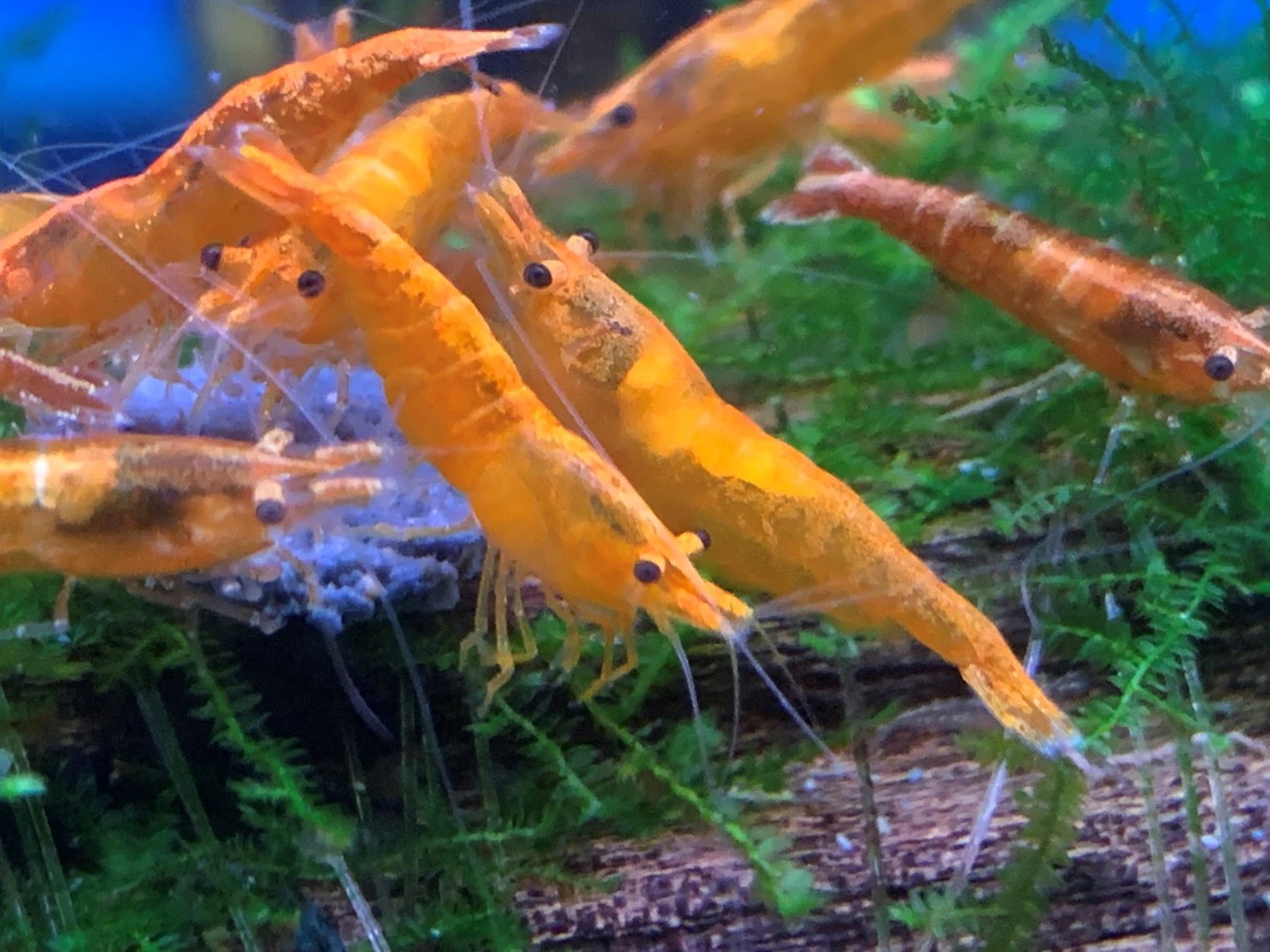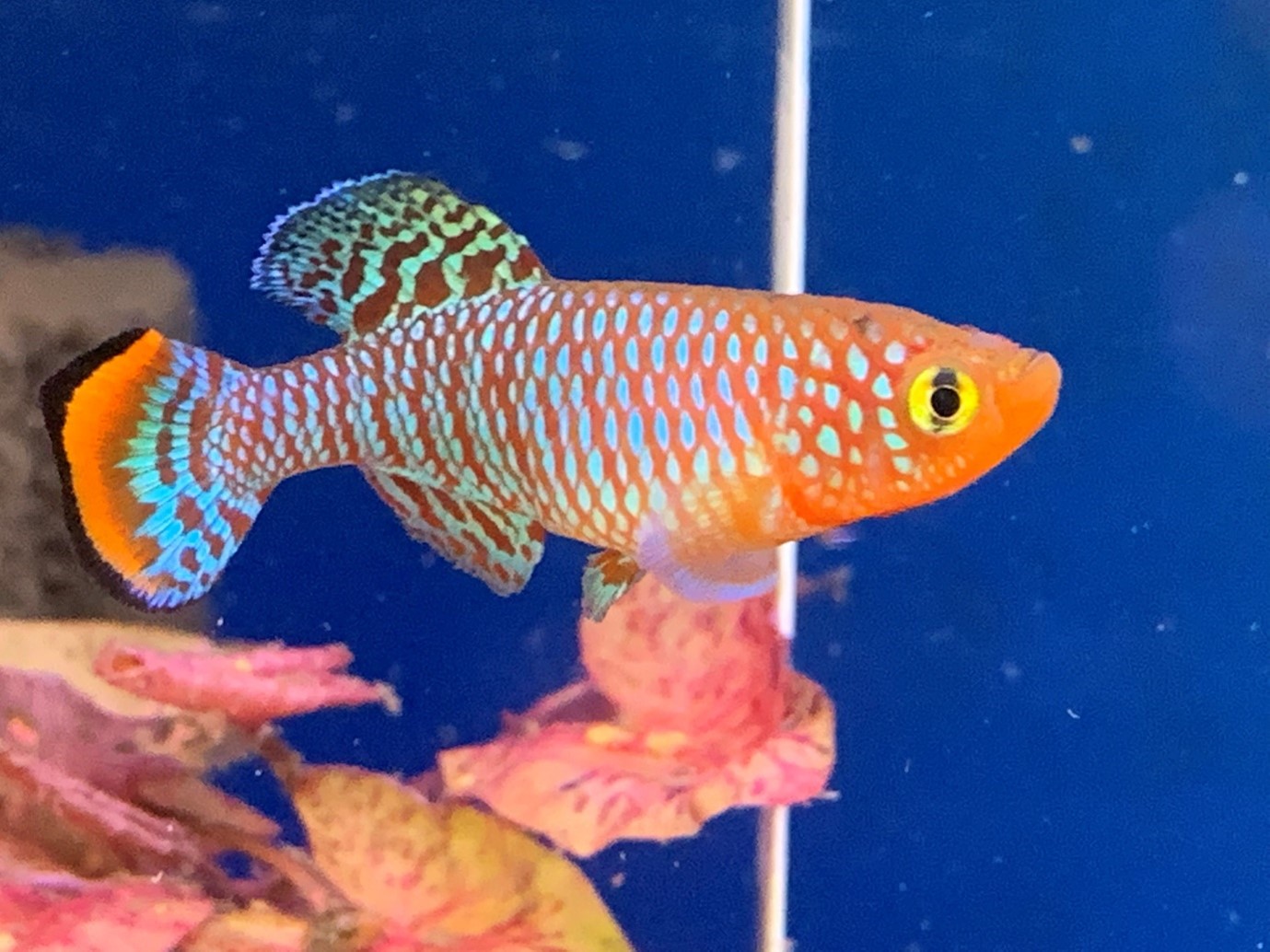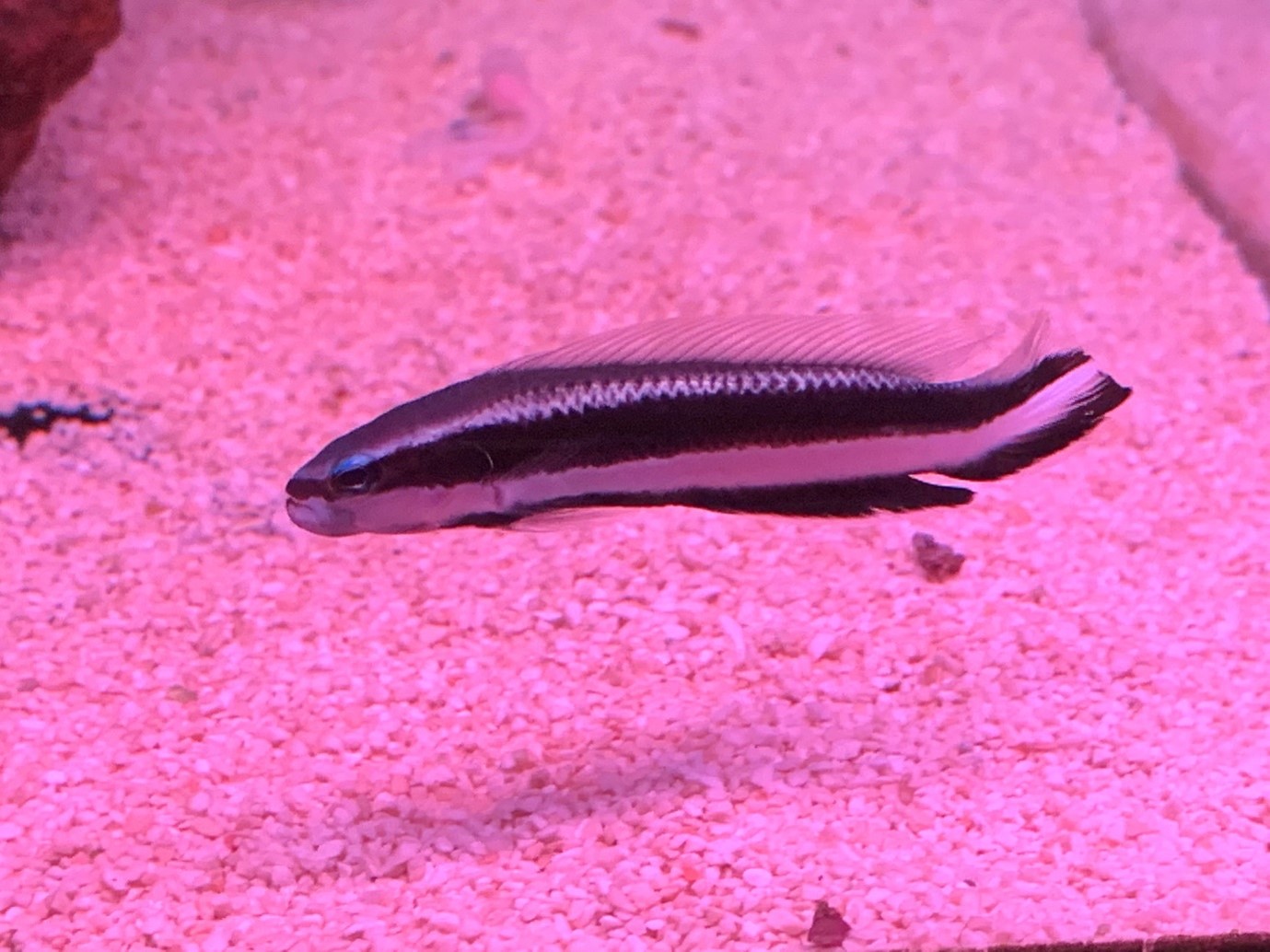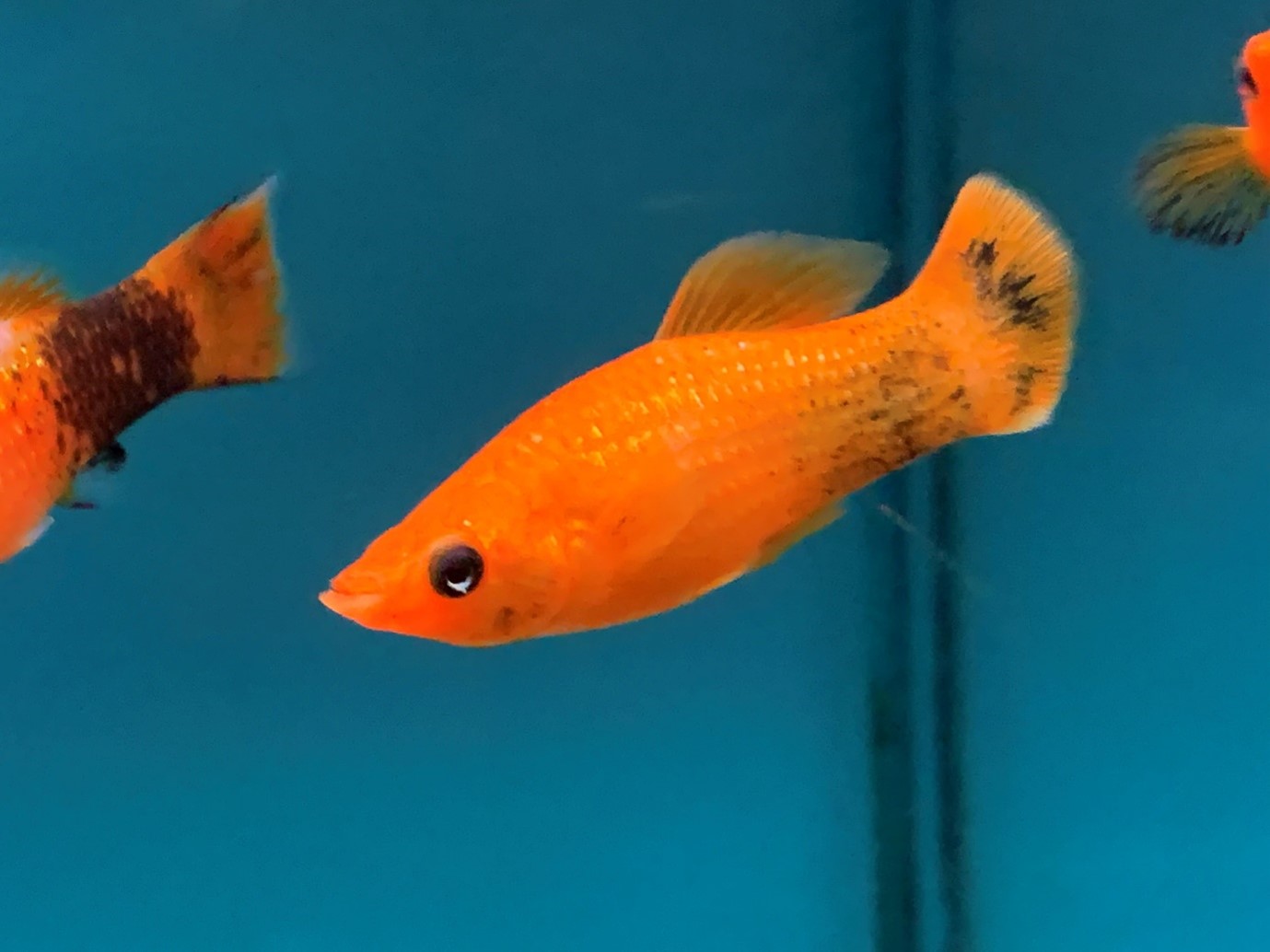What's in Store - July 2021
It’s easy to forget that not everybody has a small aquarium and a good job too, as there are still some larger species around. These Red-finned cigar shark (Leptobarbus sp.) at our Cardiff store, grow into enormous but peaceful barbs which need a lot of room. A tropical pond is ideal and their placid nature makes them good companions for other jumbo fishes which don’t always use the midwater areas of their aquarium.

It’s true to say that the best choice of pet for a small, unheated tank isn’t always a fish. Bred into many different colour forms, these Orange Sakura shrimps (Neocaridina heteropoda ‘orange’) were looking very striking at the Thornbury branch. Their care is identical to their cherry red kin: https://www.fishkeeper.co.uk/help-and-advice/freshwater/miscellaneous/cherry-shrimp

Annual killifishes can be stunning creatures which lead brief lives of sex and violence, making them a better choice for a dedicated species set up, rather than a community aquarium. Looking at this handsome Bluefin notho (Nothobranchius rachovii) at Weybridge, it’s clear that they’re well worth the effort and many enthusiasts find that they soon discover the joys of keeping a fish which spends a good part of the year as resting eggs, making them very convenient pets for those who enjoy a seasonal hobby.
https://www.fishkeeper.co.uk/help-and-advice/freshwater/killifish/bluefin-notho

With a long history of captive breeding (for a marine fish), the Striped dottyback (Pseudochromis sankeyi) is a Red Sea native which is amongst the most peaceful of a family which has some distinctly dodgy members. The black and white pattern of this fish at our Woking branch is a terrific contrast to the busy, bright colours of most reef fishes.

Livebearers are often given an unreserved reputation as beginners’ fish and it’s true to say they’re hardy and prolific. This obviously makes them a great choice as aquarium pets but overshadows some very useful traits, such as the voracious appetite for blue-green algae shown by fish such as this Gold dust Sphenops molly (Poecillia sphenops). Unlike their sailfin cousins, sphenops don’t need the addition of salt and will thrive in the surroundings of a planted tank.
https://www.fishkeeper.co.uk/help-and-advice/freshwater/livebearers/molly-

As familiar native fishes, we’re all well acquainted with Three-spined sticklebacks (Gasterosteus aculeatus) which are often the ‘tiddlers’ of our youth. Revisiting them as potential pets, like this male at Cwmbran, they’re fascinating and challenging relatives of seahorses which show the aggression of cichlids and some of the feeding challenges of marines. Kept outside, they’ll often resolve most of these issues themselves by taking advantage of abundant insect prey such as mosquito larvae. Although they’re small and native, they can be rather disruptive in a wildlife pond and are best suited to filtered features where clear water and high oxygen levels provide great views of their fascinating breeding behaviour.
https://www.fishkeeper.co.uk/help-and-advice/freshwater/pond-fish/stickleback/



